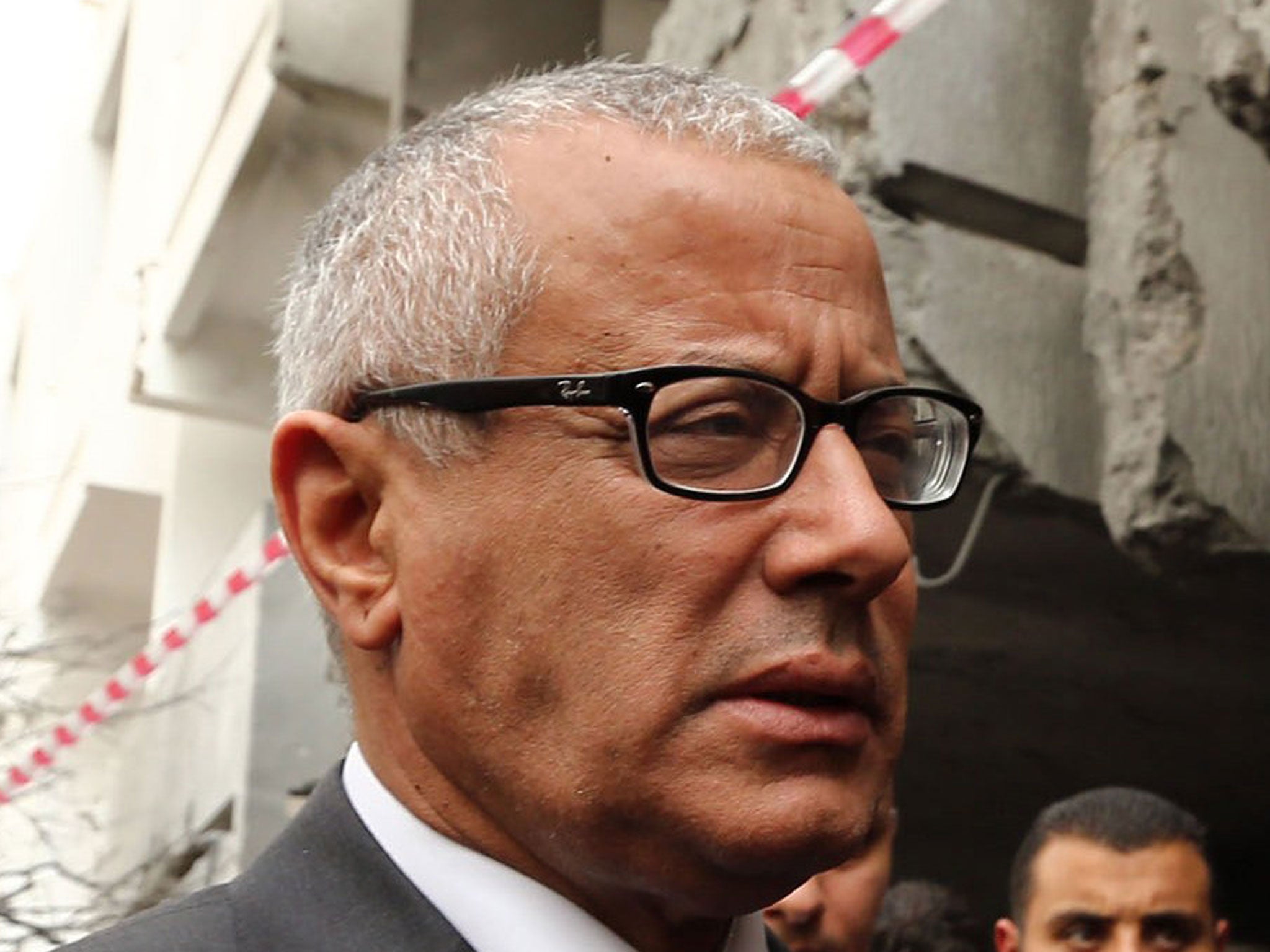Libya: Ali Zeidan's abduction perfectly illustrates failure of the post-Gaddafi state
The perception that the militiamen had beat Gaddafi through their own strength in 2011 was an illusion helped along by Western media


Your support helps us to tell the story
From reproductive rights to climate change to Big Tech, The Independent is on the ground when the story is developing. Whether it's investigating the financials of Elon Musk's pro-Trump PAC or producing our latest documentary, 'The A Word', which shines a light on the American women fighting for reproductive rights, we know how important it is to parse out the facts from the messaging.
At such a critical moment in US history, we need reporters on the ground. Your donation allows us to keep sending journalists to speak to both sides of the story.
The Independent is trusted by Americans across the entire political spectrum. And unlike many other quality news outlets, we choose not to lock Americans out of our reporting and analysis with paywalls. We believe quality journalism should be available to everyone, paid for by those who can afford it.
Your support makes all the difference.Seldom has the failure of a state been so openly and humiliatingly confirmed as happened in Libya this morning with the brief kidnapping the Prime Minister Ali Zeidan from his hotel in Tripoli by a militia allied to the government and without a shot being fired. Despite his swift release, the message is very clear: Libya is imploding two years after the former Libyan leader Muammar Gaddafi was dragged from a drainage tunnel under a road and summarily shot.
The immediate cause for his abduction was US Secretary of State John Kerry's assertion that the Libyan government had prior information about the seizure of the al-Qa’ida suspect Abu Anas al-Libi at the weekend. Mr Zeidan has now paid a price for his own compliance with the US and for Mr Kerry’s self-regarding boasts. A government that allows a foreign power to kidnap its own citizens on the streets of its capital is advertising to its own people and the world that it can no longer fulfil the most basic function of any state which is to protect its own citizens.
Dramatic though the seizure of Mr Zeidan by 150 gunmen from the Operations Room of Libya’s Revolutionaries - which had been hired by the government to provide security in Tripoli - undoubtedly is, it is in keeping with the course of events in Libya over the last two-and-a-half years. This culminated over the summer with militiamen linked to separatists in Cyrenaica, the eastern part of Libya, closing down Libya’s oil export terminals so for a time Libya ceased to export oil at all. At the same time, there have been shortages of electricity and water in the capital and a general breakdown of order. Militias act independently and run their own private prisons in which torture is common. Two tribes have been fighting their own private civil war some 25 miles from the international airport. A military prosecutor looking into assassinations was killed when a bomb blew up his vehicle.
What is happening in Tripoli is a repeat of what had begun to happen earlier in Benghazi, the original centre of the uprising of 2011 and the capital of Cyrenaica. As in the rest of Libya, the government’s attempt to integrate the militias into its security forces has largely meant it paying armed men with their own agenda whom it does not control. In Benghazi in July an Islamist militia called the Libyan Shield, which was supposedly working for the government, opened fire on demonstrators protesting against its misrule and killed 31 of them.
This should all be causing less surprise than is now being expressed internationally. The Libyan revolution of 2011 was always something of a phoney, not in the sense that Gaddafi was popular, but in the pretence that he had been overthrown by an armed opposition of Libyans and with NATO only playing a subsidiary role. The reality was that the military power that displaced and killed Gaddafi stemmed very largely from the US, Britain and France. Without Nato’s tactical air support in the form of ground attack aircraft and missiles the militiamen, who fought bravely for their own communities and cities, would not have lasted more than a few weeks. The militiamen who now purport to rule the country were in military terms largely a mopping up force.
The foreign media was complicit in encouraging the perception that the militiamen had overcome Gaddafi through their own strength. The frequent pictures of militiamen in their pick-ups firing their heavy machine guns in the general direction of the enemy implied that here there was a genuine revolution with an opposition ready to take over. In fact the dispatch of Gaddafi and his regime by Nato left a vacuum which the rest of the world scarcely noticed, aside from the killing of the US ambassador in Benghazi last year.
The international media, which had once packed the hotels of Tripoli and Benghazi, had moved on to Egypt and Syria. Libya fell off the media map as Libyan politicians have vainly struggled to fill the power vacuum, but the extent of their failure only became explicit with the brazen abduction of Mr Zeidan in the early hours of this morning.
Join our commenting forum
Join thought-provoking conversations, follow other Independent readers and see their replies
Comments